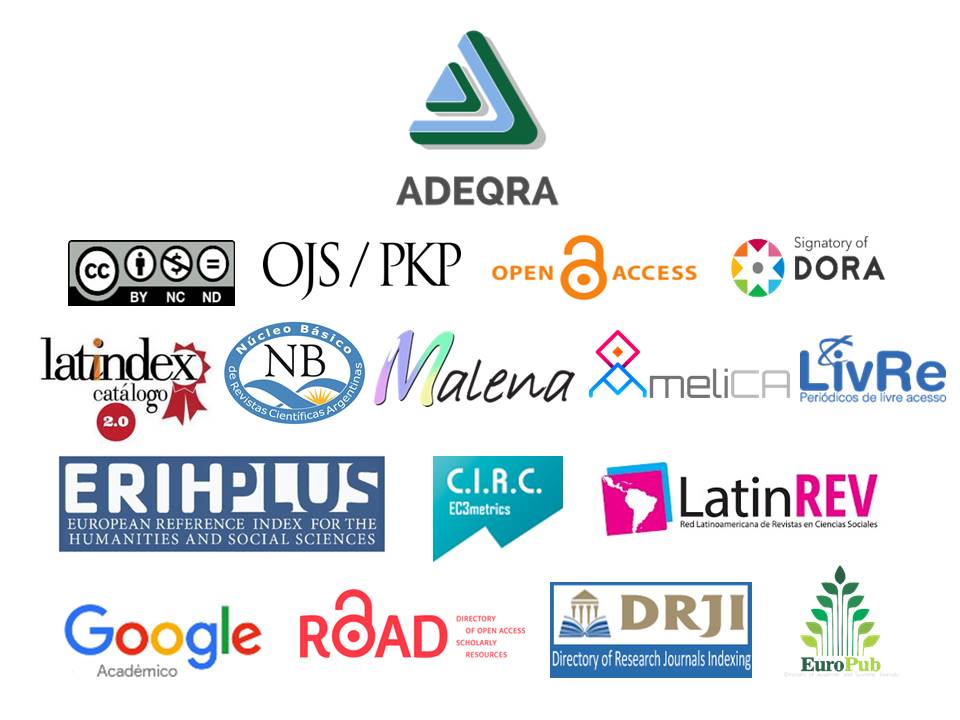The Laws of Gases in a Remote State
Keywords:
laws of gases, remote education, flipped classroom, STEAM skills, remote experimental practiceAbstract
This proposal is part of a didactic sequence diagrammed to introduce the experimental laws on the gaseous state: Boyle-Mariotte, Charles and Gay-Lussac, in a 2nd year course of secondary education during preventive and compulsory social isolation. The class group was assigned to carry out four simple experiences, to be developed individually in their homes, in which each student had to interpret what was observed using their non-formal everyday knowledge, and formal knowledge if they had any, to later be reinterpreted together with the teacher and the rest of the class in a synchronous sharing. The experiences raised brought into play problem solving, decision making, critical thinking and creativity. The results of the final evaluation of the contents addressed showed a better average approval compared to other years where the subject was given in a traditional and face-to-face way.
References
Chamizo, J. A. C. (2010). Una tipología de los modelos para la enseñanza de las ciencias. Revista Eureka sobre enseñanza y divulgación de las ciencias, 7(1), 26-41.
Chamizo J. A. C. e Izquierdo M. (2005). Ciencia en contexto. Una reflexión desde la filosofía. Alambique, 46, 9-17.
Diseño Curricular para la Educación Secundaria - 2° Año (SB). (2007). Resolución N° 2495/07. DGCyE, Provincia de Buenos Aires. https://abc.gob.ar/secundaria/sites/default/files/documentos/sec undaria2.pdf
Fernández-Labrada, M. A., Rodríguez-Heredia, D., Pérez Matos, R., García Ulacia, I., y Salas Tort, D. (2021). Laboratorios invertidos: alternativa para el aprendizaje de Química Orgánica y Biológica. Tecnología Química, 41(2), 388-404.
https://tecnologia quimica.uo.edu.cu/index.php/tq/article/view/5199
Furió Más, C. J. y Furió, C. (2018). Dificultades conceptuales y epistemológicas en el aprendizaje de los procesos químicos. Educación química, 11(3), 300-308.
Gabel, D. (2002). Foreword. En: Gilbert, J.K., De Jong, O., Justi, R., Treagust, D. F., Van Driel, J. H. (eds.). Chemical Education: Towards Research-based Practice. Dordrecht: Kluwer Academic Publishers.
Galagovsky, L. (2004) Del aprendizaje significativo al aprendizaje sustentable. Parte 1: Marco teórico. Enseñanza de las Ciencias, 22(2), 229–240.
Jato-Canales, S., Fausto-Frías, S. y Domínguez-Liriano, J. D. (2021). Aula invertida como método de enseñanza en la unidad didáctica Reacciones Químicas de quinto grado del Nivel Secundario. RECIE. Revista Caribeña de Investigación Educativa, 5(1), 19-39. https://doi.org /10.32541/recie.2021.v5i1.pp19-39
Lompardía, S. (2021). Pandemia y continuidad pedagógica: Reflexionando sobre la Química en el contexto de la inmunología y sobre educación remota de emergencia. Educación en la Química, 27(1), 60-68.
https://educacionenquimica.com.ar/index.php/edenlaq/article/view/4
Marrero Galván, J. J. y González Pérez, P. (2023). Investigaciones sobre el uso de analogías en el aula de ciencias: una revisión sistemática Revista Eureka sobre Enseñanza y Divulgación de las Ciencias, 20(1) 110101-110121. Universidad de Cádiz, España.
https://www.redalyc.org/articulo.oa?id=92072334006
Perren, M. A., Bottani, E. J. y Odetti, H. S. (2004) Problemas cuantitativos y comprensión de conceptos. Enseñanza de las Ciencias, 22(1), 105-114.
Petrucci, R. H., Herring, F. G., Madura, J. D. y Bissonnette, C. (2011). Gases. En: Química General. Principios y aplicaciones modernas. 10ma edición. (192-240). Pearson Educación, S. A.: Madrid.
Talanquer. V. (2005). El químico intuitivo. Educación química, 16(4), 540-547.
Trinidad-Velasco, R. y Garritz, A. (2003). Revisión de las concepciones alternativas de los estudiantes de secundaria sobre la estructura de la materia. Educación química, 14(2), 72-85.
Vanegas, Y. (2021). STEM, STEAM, STREAM: Posibilidades, reflexiones y experiencias. Didacticae, (10), 4-7.
Published
How to Cite
Issue
Section
License
Copyright (c) 2023 Cintia V. Ils, Sandra A. Hernández

This work is licensed under a Creative Commons Attribution-NonCommercial-NoDerivatives 4.0 International License.



